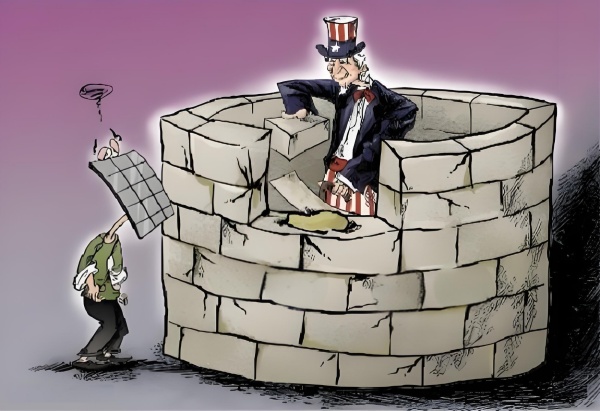U.S. Department of Commerce Considers Partial Revocation of Duties on Chinese Solar Products
The official website of the U.S. federal government announced on October 21 that in response to a request from Ruichuang Electronics, the U.S. Department of Commerce has initiated a review process to "consider partially revoking anti-dumping and countervailing duties on certain crystalline silicon photovoltaic (CSPV) cells from China."

The official website of the U.S. federal government announced on October 21 that in response to a request from Ruichuang Electronics, the U.S. Department of Commerce has initiated a review process to "consider partially revoking anti-dumping and countervailing duties on certain crystalline silicon photovoltaic (CSPV) cells from China."
In 2015, the U.S. Department of Commerce issued anti-dumping and countervailing duty orders against solar products from China. In August 2024, Ruichuang Electronics, a domestic manufacturer, importer, and exporter of the affected goods, requested under Section 751 of the Tariff Act of 1930 for partial revocation of these orders. Along with this request was a letter from the American Solar Manufacturing Alliance, a stakeholder in the process, which expressed no opposition to Ruichuang's proposal. No other stakeholders have objected to this request.
Based on the submissions from Ruichuang Electronics and the non-opposition letter from the American Solar Manufacturing Alliance, the U.S. Department of Commerce believes there is sufficient basis for an examination. A 14-day public comment period will now begin. Analysts suggest that if this request is approved smoothly, it could have a positive impact on the exports of specific small solar cell products from China.
This year alone, the Biden administration has made continuous adjustments to policies related to photovoltaic products. In August, import tariff quotas for solar cells were increased from 5 gigawatts (GW) to 12.5 GW. This change means that more than double the quantity of solar cells can now be imported without tariffs, aiming to assist manufacturers reliant on imported materials for solar cell components. At that time, White House officials noted that representatives from most sectors within America's solar manufacturing industry had submitted a petition requesting modifications to safeguard tariff measures, including calls for eliminating tariff quotas or increasing them further up to 20 GW annually.
Some analysts believe that although the products under consideration are niche items within broader categories, they indicate signs of potential easing in U.S.-China trade policy regarding photovoltaic components. Communications industry expert Xiang Ligang remarked on October 23 during an interview with Global Times reporters that while one aim may be suppressing Chinese competition through tariffs on solar products, there is also concern that reduced access to affordable high-quality imports might hinder the widespread adoption of solar energy domestically due to internal interests, thus prompting possible "easing" measures.